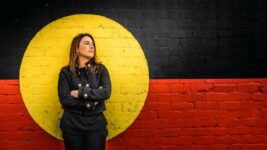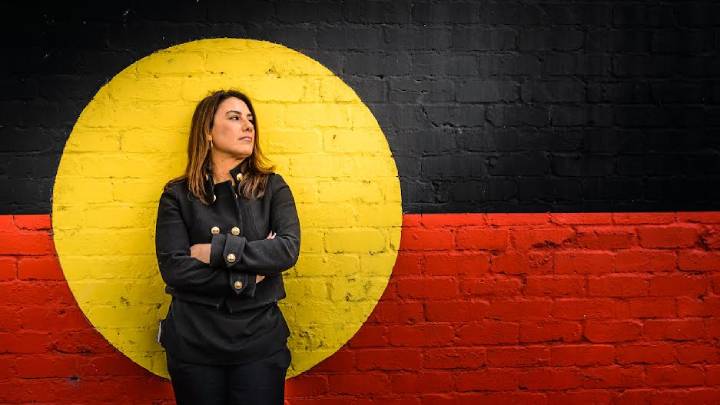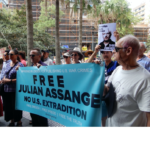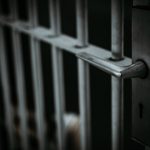Government Is Stalling on Rights Abuses in Detention: Senator Lidia Thorpe on OPCAT

Following the 2016 revelations involving the abuse and torture of children at Darwin’s Don Dale Youth Detention Centre, then attorney general George Brandis ratified the OPCAT in December 2017.
This committed our nation to a UN-governed system to prevent rights abuses in places of detention.
Canberra has opted for a federated OPCAT inspection system, with the Commonwealth Ombudsman overseeing it. However, under attorneys general Christian Porter and Michaelia Cash, the implementation process has been stalling.
In October this year, Greens Senator Lidia Thorpe put a number of questions to current AG Cash that suggests there’s a breakdown between the federal, state and territory governments in terms of a coordinated approach to implementing OPCAT.
However, delivered this week, Cash’s responses do not bode well for the proposed January 2022 OPCAT rollout, as the chief lawmaker advises that the intergovernmental agreement on OPCAT is again being revised, and confusion remains over which level of government is funding it.
A preventative mechanism
OPCAT, or the Optional Protocol to the Convention against Torture and Other Cruel, Inhuman or Degrading Treatment or Punishment, is a treaty that establishes an independent inspection system for places of detention that has a focus on preventing human rights abuses before they happen.
Once ratifying the OPCAT, a nation is obliged to establish the National Preventive Mechanism: a system of independent inspection bodies that randomly visit and assess all places where people are deprived of their liberty, including corrections, youth, immigration and mental health facilities.
The office of the Commonwealth Ombudsman is the authority appointed as NPM coordinator in this country. And the NPM inspections significantly differ from traditional forms of monitoring enclosed settings due to their preventative nature.
The OPCAT system also includes the Subcommittee on Prevention of Torture, which is a UN body comprised of 25 independent experts. The SPT’s mandate is to visit OPCAT state parties and inspect their places of detention, as well as to provide oversight and guidance to local NPMs.
An issue for First Nations
Over her time in Canberra, Senator Thorpe has been ensuring that OPCAT remains on the agenda. As a Gunnai Gunditjmara and Djab Wurrung woman, the senator is well aware of the rights abuses that Indigenous people are subjected to within Australian places of detention.
The First Nations peoples of this continent are the most incarcerated people on the planet. Indeed, in June this year, 30 percent of the adult prisoner population in this country were Aboriginal and Torres Strait Islander people, yet they only account for about 3 percent of the overall populace.
Sydney Criminal Lawyers spoke to Australian Greens Senator Lidia Thorpe about the difference a fully implemented OPCAT could have had during the COVID period, the disconnect between the federal and state governments, and why this issue is particularly pertinent for First Nations.

Having ratified the OPCAT in December 2017, the Australian government aims to roll out the National Preventive Mechanism by next January.
However, this process has been stalling at the federal level under attorneys general Porter and now Cash.
Senator Thorpe, you’ve been keeping OPCAT on the agenda in federal parliament. What’s the importance of the mechanism? And why is it stalling?
If we are going to have a culturally safe, properly resourced, effective and independent oversight mechanism of places of detention in this country then the Commonwealth government must show leadership and provide the public money that is needed to make this happen – without delay.
OPCAT implementation is far too important for it to be patchy and inconsistent. Without independent monitoring of places of detention more of our people will die in custody.
I have been working in and out of parliament to make sure that the government takes the lead on implementing OPCAT across all of the states and territories equally.
Earlier this year, NSW attorney general Mark Speakman stated in budget estimates that his government hadn’t supported the ratification of OPCAT, and it won’t do so until resourcing concerns are addressed.
Does this reflect a reluctance at the state level, or is it an issue on the federal side? How are states and territories moving with OPCAT implementation?
It’s incredibly disappointing that such a large jurisdiction, like NSW, does not support the ratification of such a critical instrument of international human rights law.
However, in their defence the Commonwealth government has shown a complete lack of interest, will, or conviction in showing leadership on OPCAT implementation.
OPCAT implementation can’t be left to the states alone – because that will lead to us having a patchwork system where the more resourced states, or the most motivated ones, will have the best oversight mechanisms.
There have been concerns about COVID-19 entering places of detention. But this wasn’t acted upon for the most part and a major outbreak occurred at the privately run Parklea prison in NSW.
How might the prior implementation of OPCAT have affected how the pandemic was handled at facilities where it would have applied?
The Morrison government’s COVID-19 response failed to protect the rights of imprisoned people, and this continues with their complete failure of leadership and implementation of OPCAT.
Torture, cruel and unusual punishment, human rights abuses, exploitation, and degrading treatment flourishes in the dark, particularly in settings where people are not free to leave.
A properly resourced and culturally safe OPCAT would have meant that prisons, police watch houses and maybe even aged care homes could have been properly monitored for breaches of human rights by an independent authority and governments everywhere would have likely needed to act.
Countless Royal Commissions, coronial inquests, parliamentary inquiries and other investigations have been clear that independent and accountable oversight is required.
However, our government is dragging its feet on fully implementing OPCAT across the whole country – including in my state of Victoria.
Currently, there’s a COVID outbreak amongst refugee detainees at the Park Hotel in Melbourne. The men continue to be held at the site where the outbreak has taken place.
How could OPCAT have made a difference to the handling of this situation?
What is happening at the Park Hotel is absolutely barbaric and in breach of our international obligations, as well as our moral and ethical obligations to people seeking asylum in this country.
Whether you are treated humanely in detention should not be a game of chance – every person in detention, regardless of the reason or where they are being detained has the absolute right to be treated fairly, with dignity, and to be free from torture always.
The over representation of First Nations peoples in detention facilities across this country is stark. Can you talk on how OPCAT implementation reflects on this and the impact it might have?
The culturally safe, properly resourced, implementation of OPCAT in Australia is now more important than it has ever been.
It’s particularly concerning that in a 12 month period between August 2018 and August 2019, the proportion of Aboriginal and Torres Strait Islander deaths in custody, where medical care was required but not given, increased from 35.4 percent to 38.6 percent.
The proportion of Aboriginal and Torres Strait Islander deaths in custody where not all procedures were followed before the death increased from 38.8 percent to 41.2 percent in the same period.
Alarmingly, Aboriginal and Torres Strait Islander women were less likely to have received all the appropriate medical care they needed prior to their death.
Authorities were also less likely to have followed all their own processes and procedures regarding incarcerated women in cases where an Indigenous woman died in custody.
Arguably, a properly resourced, culturally safe OPCAT framework would have exposed these and the many issues in gaols across the country before they caused the deaths of First Nations people.
Arguably, the many, many abuses of imprisoned First Nations people would have been prevented if an independent body was responsible for monitoring places of detention, particularly during the pandemic where access to these facilities was restricted or not possible.
And lastly, Senator Thorpe, when Australia ratified the OPCAT in late 2017, the overwhelming reaction was “finally”.
The government had signed on to the treaty in 2009. And it’s commonly understood that it only came to the table due to the fallout over the Don Dale revelations.
In the context of all this, how does the stalling on the implementation of the OPCAT system reflect upon the nation’s stated commitment to improving its places of detention?
It’s incredibly disappointing that the government is not taking the full culturally safe and properly resourced implementation of OPCAT seriously, particularly as 2021 is the thirtieth anniversary of the Royal Commission into Aboriginal Deaths in Custody.
As usual, this government is doing the absolute bare minimum and calling it progress – and we see straight through it.
The Greens are committing to keeping this government accountable in relation to OPCAT – so that our people are culturally safe, consulted and empowered, every step of the way.







